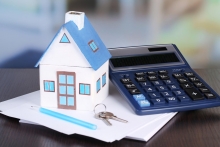Gary Gorman
Gary Gorman has over 40 years of real estate tax experience. He received his BS degree in Accounting from Mankato State University in Mankato, Minnesota in 1972. He received his CPA certificate from the State of Minnesota in 1978. He has over 10 Years of Big 6 CPA firm experience where he served as a tax manager with Price Waterhouse & Company.Phone: 866-694-0204
Email: Ask@Expert1031.com
TEE-Shots
Subscribe to our newsletter to get up to date info on 1031 Exchanges!
Recent Posts
Last Viewed
1031 News - last view [timestamp]
© 2004-2025 Expert1031 | Privacy Policy










It Doesn’t End at 15%
The role of debt in a 1031 exchange
THE FUTURE of The 1031 Exchange Industry